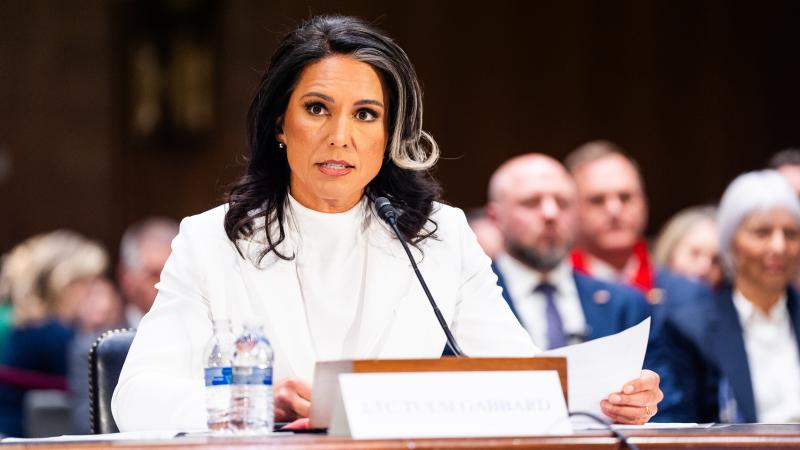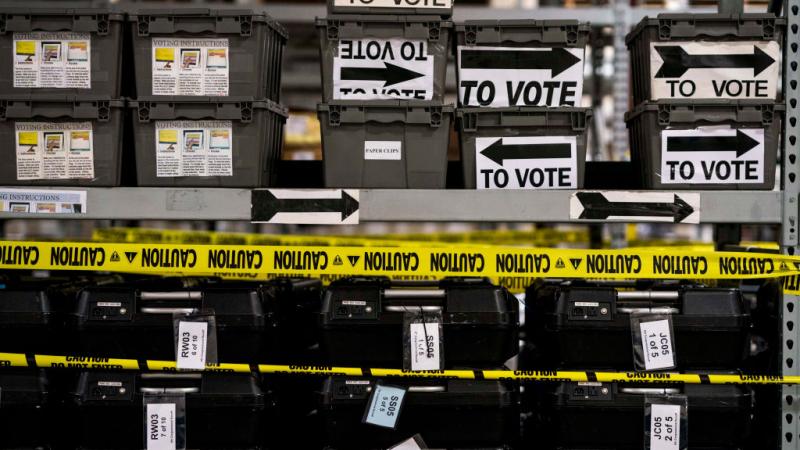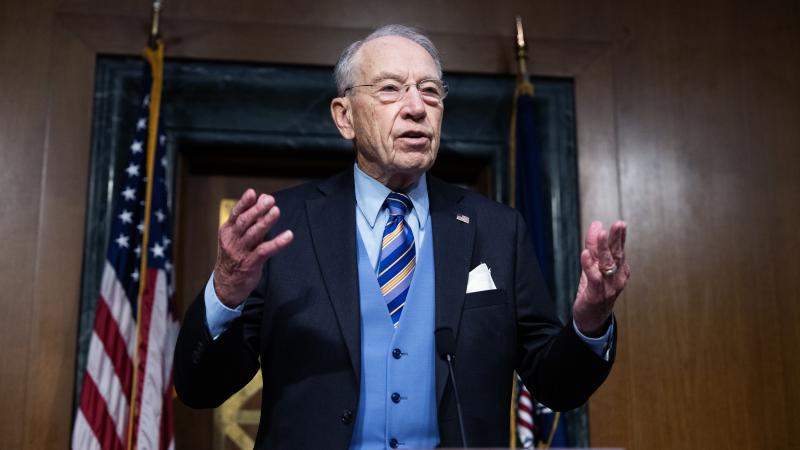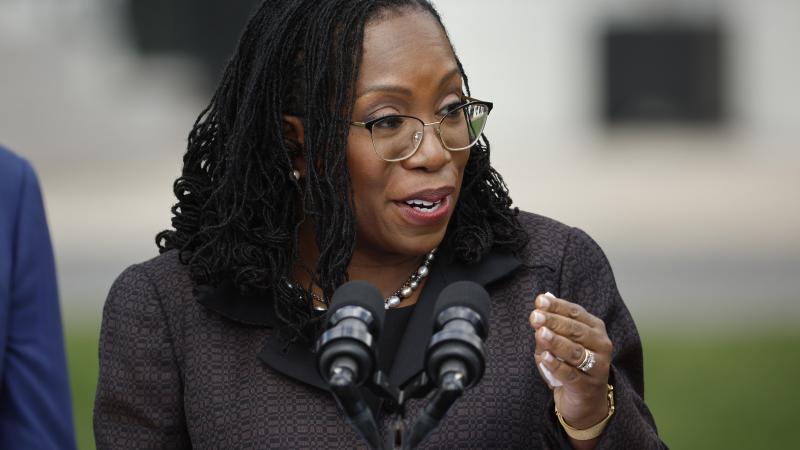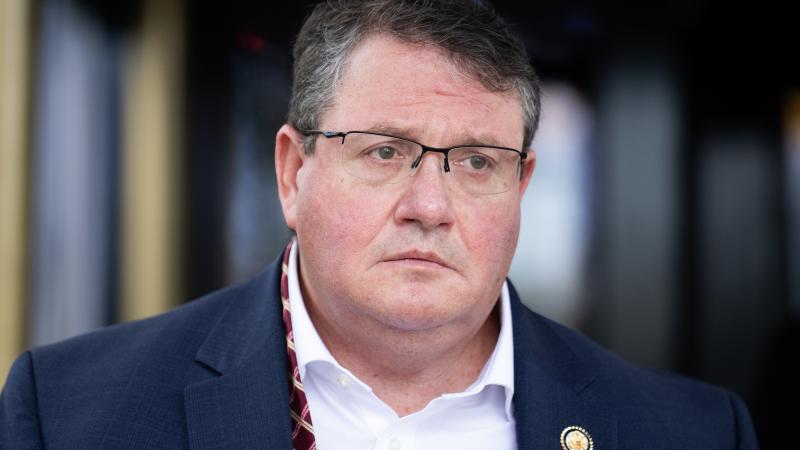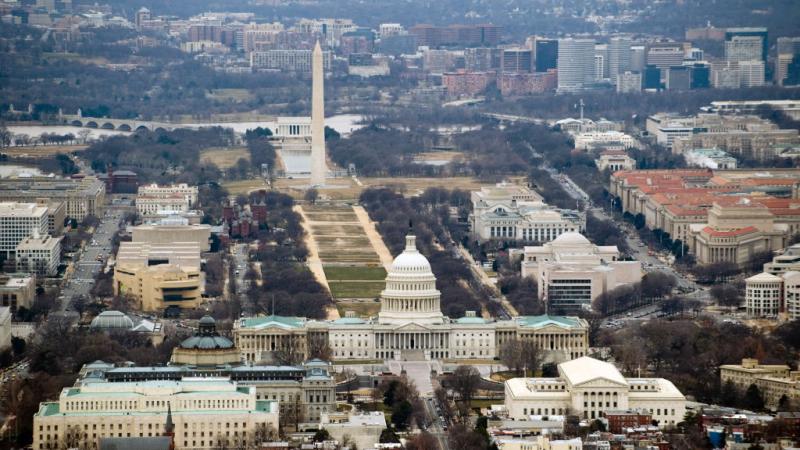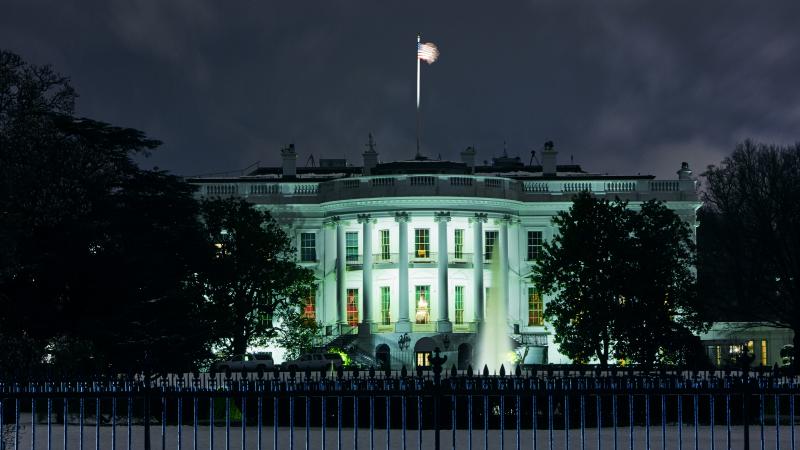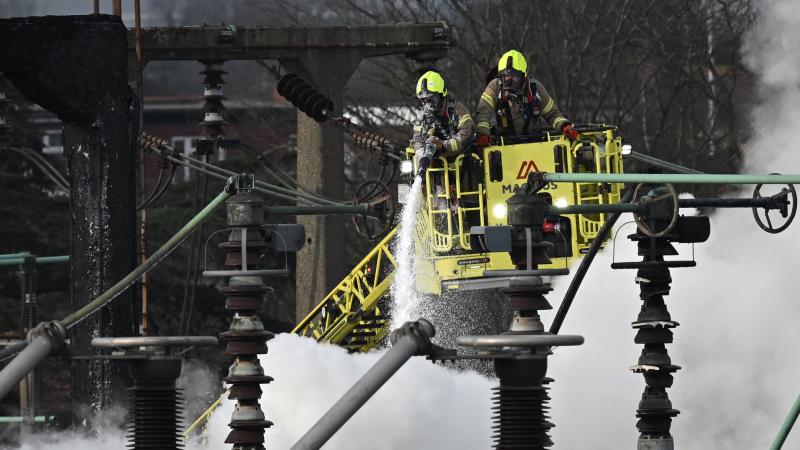Trump fires inspectors general following promise to make watchdogs independent after past missteps
President Trump defended the move and said IGs were “not doing the job.”
President Donald Trump put into motion long-held plans to revamp the government watchdogs that oversee federal agencies, especially after members of Congress have repeatedly raised concerns about the watchdog offices covering for their agencies instead of facilitating accountability.
The move is likely to result in a court battle as alarmed critics warned the termination of nearly 20 of the inspectors general was “illegal” and would undermine independent oversight. A new law passed on a bipartisan basis in 2022 requires notification to Congress if a president plans to fire an inspector general, which congressional leaders say Trump did not provide.
A day after the move, Trump told reporters aboard Air Force One that he terminated the watchdogs because “it’s a very common thing to do,” and noting that “not all of them” were fired.
“I don’t know them, but some people thought that some were unfair or were not doing the job. It’s a very standard thing to do,” Trump said.
Congressional Republicans have recently raised concerns about the independence of the inspector general offices after facing pushback on oversight probes during the Biden Administration, which may be the criticism that Trump is latching on to.
Questioning independence
In December, the House Administration Subcommittee on Oversight raised concerns in a report from its investigation of Jan. 6 security failures about the independence of the watchdog agencies after the Department of Defense Inspector General refused to provide materials to Congress amid political interference from the Secretary of Defense’s office.
Chairman Barry Loudermilk’s committee first approached the DOD’s IG Robert Storch to request an unredacted version of the agency’s review of the Pentagon’s role and responsibilities as it related to security failures on January 6. The report was widely criticized by several D.C. National Guardsmen-turned-whistleblowers, who excoriated Pentagon leadership for whitewashing their failures. Storch also declined to furnish the witness interview transcripts that Loudermilk had requested.
Eventually, the OIG consented to allow the committee to review a “minimally redacted” version of the report and witness transcripts in camera—in house—but they could not obtain copies for themselves.
During the process of negotiating the in-camera review, the subcommittee noted that the DOD OIG copied the Secretary of Defense’s staff on emails to the subcommittee, which the report noted was strange.
When the time came to review the document, certain subcommittee staff were restricted from accessing the document by the Secretary of Defense’s office, the report says.
“It is extremely concerning and inappropriate for the exact entity which the Inspector General is tasked with overseeing obstructs or influences the investigative process and communications,” the subcommittee concluded in its report.
Members of Congress also raised separate concerns about the interference by the Department of Homeland Security into the inspector general’s office. Loudermilk, along with Senator Chuck Grassley, R-Iowa, outlined allegations that the department restricted its internal watchdog arm from conducting proper investigations and requested "improper redactions" in reports to Congress.
"As Members of Congress who value and expect transparency and accountability within the federal government, we are very troubled by all instances where we receive heavily redacted reports," the pair wrote, Just the News previously reported.
Their concerns were spurred by a DHS letter earlier this month stating that there must be "appropriate safeguards" on any information that the inspector general's office would provide to Congress as well as directing "sensitivity reviews" on reports from the OIG for national security reasons. Grassley and Loudermilk said Congress should not be restricted from receiving any information from the agency.
Failure to notify Congress
Critics immediately moved to denounce Trump’s orders, citing a 2022 law that requires that a president give a “substantive rationale, including detailed and case-specific reasons” before removing an IG and requires that their temporary replacements must be drawn from senior leadership in the office.
“The mass firing of Inspectors General by the Trump Administration without grounds and advance notice to Congress is a clear violation of the law,” Senator Adam Schiff posted to X. “But, of course, we know the cause: Trump wants no accountability for malfeasance in office.”
Schiff was joined by other Democratic lawmakers including Sen. Elizabeth Warren, Rep. Gerry Connelly, and Rep. Dan Goldman.
Republican Senator Chuck Grassley, a longtime advocate of federal watchdog agencies, delivered a more muted response but noted that Trump violated a provision of the 2022 law by not notifying Congress ahead of the move.
“There may be good reason the IGs were fired,” Grassley said in a statement, per CNN. “We need to know that if so. I’d like further explanation from President Trump. Regardless, the 30 day detailed notice of removal that the law demands was not provided to Congress.”
Before the president’s inauguration, Grassley said that Trump “should not” seek to remove all the current federal watchdogs when he takes office again and said that he intended to “defend them.”
Trump is also receiving pushback from the inspectors general he fired. Former Inspector General of the Small Business Administration Hannibal “Mike” Ware said that Trump’s move is a "threat to democracy” and undermines the independence of the watchdog offices.
“We're looking at what amounts to a threat to democracy, a threat to independent oversight and a threat to transparency in government,” Ware said in an interview on MSNBC on Monday.
Other inspectors general have said they plan to continue showing up to work, citing Trump’s failure to abide by a provision in the law passed by Congress.
Echoes of Reagan
During his campaign, President-elect Donald Trump specifically targeted Inspectors General offices for reform, floating a plan to make them entirely independent from the agencies and departments they oversee to promote better oversight.
He believes that separating the watchdogs from their parent agencies that they are tasked with overseeing will help eliminate the deep state, the former president’s famous moniker for the permanent, entrenched bureaucracy in Washington, D.C., that he believes derailed his first term.
In a video message outlining plans to reform that bureaucracy during the campaign, Trump promised that to “[make] every Inspector General’s Office independent from the departments they oversee, so that they do not become protectors of the deep state.”
At the beginning of its first term, the Trump White House caused a stir on Capitol Hill when a transition team staffer informed several IGs that they could retain their jobs while a search for replacements was underway. But, after Congressional allies expressed concerns about a full scale replacement of chief watchdogs, the White House backed down and blamed the incident on a mistake by a staffer, Politico reported.
In 2020, Trump also fired five inspectors general, including the intelligence watchdog who referred the whistleblower complaint to Congress that sparked the first impeachment investigation, the watchdog overseeing pandemic relief, and the watchdog overseeing the State Department.
The last president to remove inspectors general en masse was President Ronald Reagan shortly after he was inaugurated for his first term. He removed all 15 of the confirmed IGs at the time causing similar concern among members of Congress that the president was undermining the independence of the watchdogs. The concerns of lawmakers were assuaged because they broadly approved of the individuals Reagan nominated to replace the outgoing IGs, according to the Congressional Research Service.
The Facts Inside Our Reporter's Notebook
Links
- termination of nearly 20 of the inspectors general
- raised concerns in a report
- widely criticized
- interference by the Department of Homeland Security into the inspector generalâs office
- requires that a president
- Schiff posted to X
- Grassley said in a statement
- Trump âshould notâ seek to remove
- Ware said in an interview
- plan to continue showing up to work
- Trump promised
- expressed concerns
- removed all 15 of the confirmed IGs at the time
